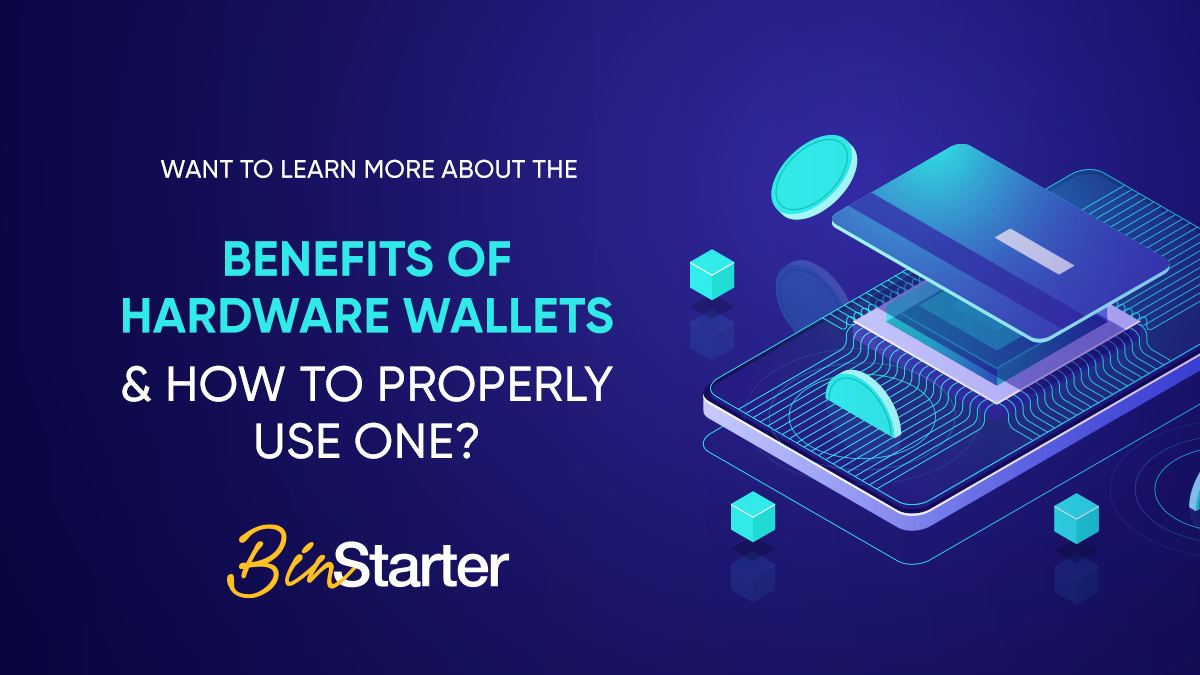
What is a Crypto Hardware Wallet and How Does it Work?
Whether you're a beginner or a seasoned pro, a hardware wallet can help you protect your funds and give you greater control over your financial future.
What are Hardware Wallets?
Hardware wallets are becoming increasingly popular among cryptocurrency investors as a way to securely store and manage their digital assets. These physical devices, also known as cold wallets, provide an extra layer of security by storing the private keys offline and away from the reach of hackers. In this article, we will discuss why hardware wallets are important, the different types of hardware wallets available, and best practices for using them to ensure the safety of your funds.
Why do People Use Hardware Wallets?
One of the main reasons why people use hardware wallets is to protect their cryptocurrencies from hacking and theft. Unlike software wallets, which store the private keys on a computer or mobile device, hardware wallets keep the keys offline and away from the internet. This makes it almost impossible for hackers to access the funds stored on the device, even if they manage to gain access to the computer or device that the wallet is connected to.
Another advantage of hardware wallets is that they allow for offline transactions, also known as "cold storage." This means that you can securely store your cryptocurrencies on the device and make transactions without the need for an internet connection. This is particularly useful for people who hold large amounts of cryptocurrency and want to keep them safe from online threats.
When it comes to hardware wallets, there are several options available on the market, such as Ledger, Trezor, and Ngrave. Ledger and Trezor are two of the most popular hardware wallets, both of which offer a wide range of features and support for multiple cryptocurrencies. Ngrave is a newer player in the market, but it's already gaining popularity for its advanced security features.
What are the Best Practices When Using Hardware Wallets?
When using a hardware wallet, it's important to follow certain best practices to ensure the safety of your funds. The first and most important step is to never share your recovery seed phrase with anyone. This phrase is used to restore access to your funds in case you lose your device or forget your password. It should be kept in a safe place, preferably in multiple physical locations.
Another important practice is to always double check the address you're sending funds to. Make sure you are sending them to the correct address and never send funds to an address that you do not trust. Also, never leave your hardware wallet connected to an untrusted computer or device.
When it comes to fund security, hardware wallets provide a high level of security, but it's important to remember that no system is completely invulnerable. It's always a good idea to have a backup of your recovery seed phrase in case you lose your device or forget your password. Additionally, it's a good practice to use a passphrase on top of the pin code to add an extra layer of security.
In conclusion, hardware wallets are an essential tool for anyone who takes the security of their cryptocurrency investments seriously. They provide an extra layer of security by storing private keys offline and away from the internet. Ledger, Trezor, and Ngrave are just a few examples of hardware wallets available on the market, each with its own set of features and security options. By following best practices and keeping a backup of your recovery seed phrase, you can ensure the safety of your funds and rest easy knowing that your investments are secure.
About BinStarter
BinStarter is a decentralized mining-style approval mechanism insurance protocol that is designed to examine projects according to certain criteria for 30 days and to protect liquidity providers against possible financial damages or any negativities.
Website | Announcement Channel | Telegram Chat | Twitter | Blog
BinStarter Blog & News Newsletter
Join the newsletter to receive the latest updates in your inbox.





